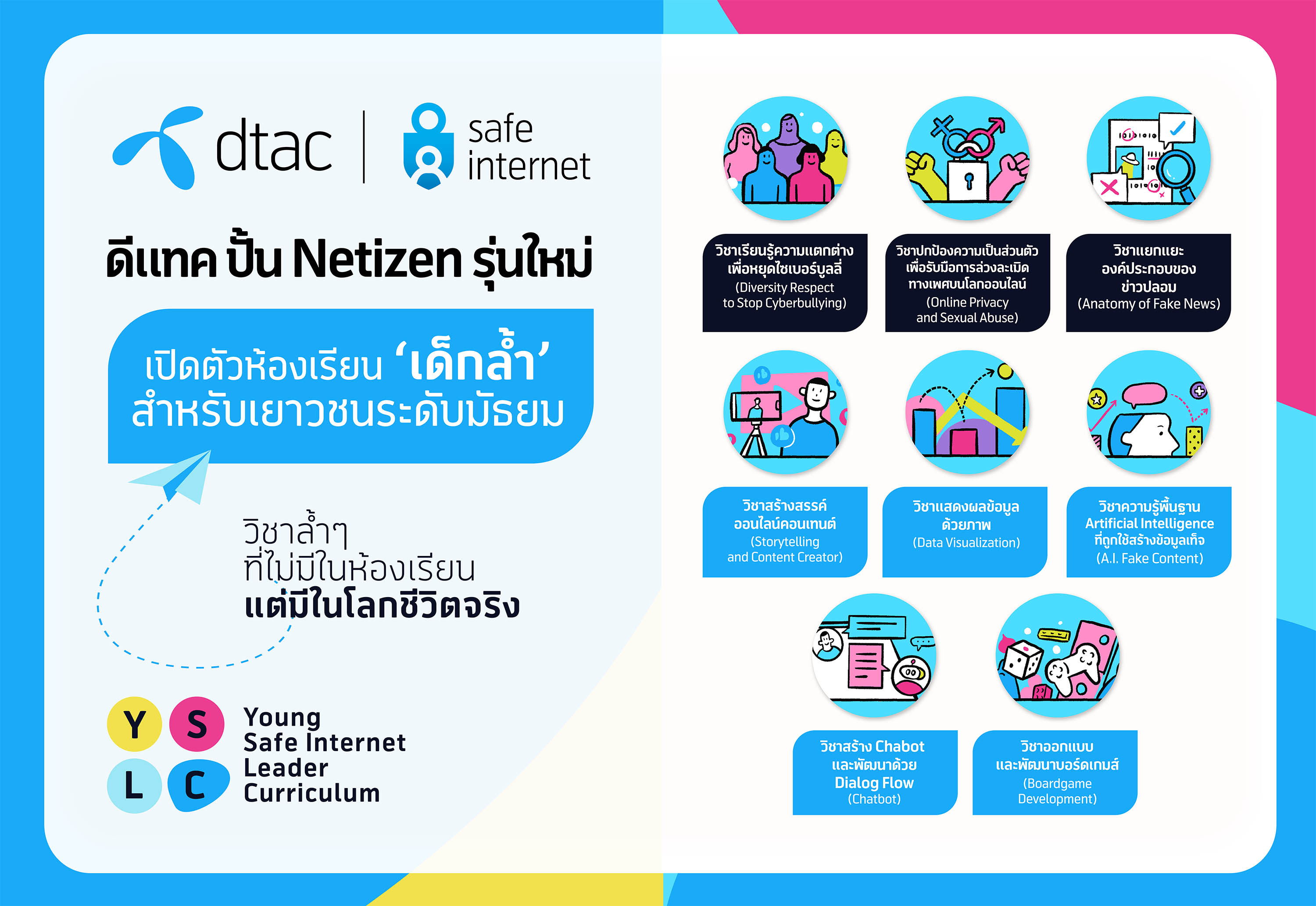June 2, 2020 – dtac is boosting children’s immunity to online threats through a new e-learning platform titled “Class for Super Kids,” which offers tutorials on technologies such as artificial intelligence or data visualization, in addition to building up their understanding of online threats.
The Class for Super Kids – which launched today – is focused on creating responsible netizens while ensuring they can safely benefit from new technologies.
After registering at learn.safeinternet.camp, children can access eight classes which last roughly one hour each. They can study at their own pace.

The project is part of dtac’s Safe Internet mission, now in its fifth year. For 2020, the Safe Internet project is focusing on respecting sexual diversity, in response to a rise in online bullying of lesbian, gay, bisexual, transgender, and queer (LGBTQ) youth, 80 percent of whom have reported that they have been victims of bullying.
On-Uma Vattanasuk Rerkpattanapipat, dtac’s Head of Communication & Sustainability, said, “The Class for Super Kids project is designed to give knowledge and skills that aren’t currently taught in school. These skills are essential for children and teens, given that they spend nine hours or more on the online world on average.”
With these courses, children will be able to deal with cyber threats ranging from bullies, shaming, slander, sexual violation, unaccredited news, breach of privacy, or inappropriate online content. In addition to protecting themselves, it is dtac’s ambition that the graduates will go on to support their friends and family, and act as role models in their community.

The Class for Super Kids is divided into two objectives: 1.) Spotting online threats through critical thinking, as well as behaving properly in the online world. 2.) Advance digital skills such as chatbots, artificial intelligence and data visualization.
Courses include:
- Online Privacy & Sexual abuse – teaches about individual personal profiles and their importance, as well as about sexual violation and exploitation
- Respect of Diversity to Stop Cyber Bullying – Starting with questionnaires, this objective educates entrants on social diversities to build up their right attitudes toward differences of people, while generating their natural respect and self-restraint – to prevent them from bulling or shaming others. These teachings are based on dtac’s researches and studies about cyberbullies among students at the lower secondary level, which find that LGBTQ students are most subjected to bullies and abuses about their differences, especially on their sexual diversities. The researches learn also that more than 80 percent of them are abused averagely once a week, and in their own classrooms.
dtac is also supporting teachers to help them protect their students. Based on dtac’s research, vulnerable students said teachers and parents would ideally be their first choice for support, but they children also see them as incapable of understanding what is happening in the online world. Hence, dtac is raising adults’ digital skills to make them better guardians for the children under their care.

About dtac Safe Internet
dtac believes connectivity should empower all of society, including children and youths. To ensure a positive online experience, the dtac Safe Internet project equips Thai youth with awareness of online risks as well as digital skills via the Class for Super Kids e-learning platform.
dtac also conducts biannual youth leadership activities, building awareness of online risk and mentoring projects in association with FabCafe Bangkok, a network of maker labs across 12 countries. dtac has also been funding projects that could be developed into activities at schools and communities in a subsidy scheme of more than Bt400,000, as well as opportunities for exhibitions and national roadshows. Finally, dtac works jointly with educational institutes across the country, holding seminars to further strengthen their immunity to online threats.


